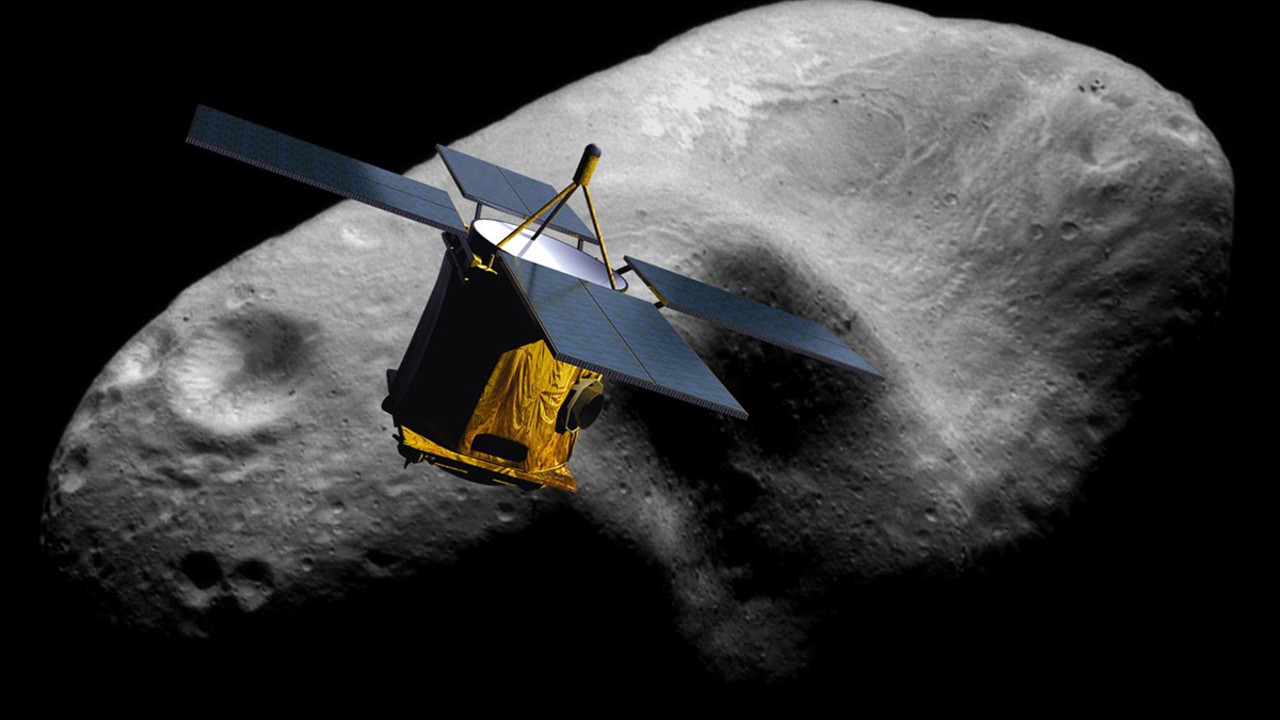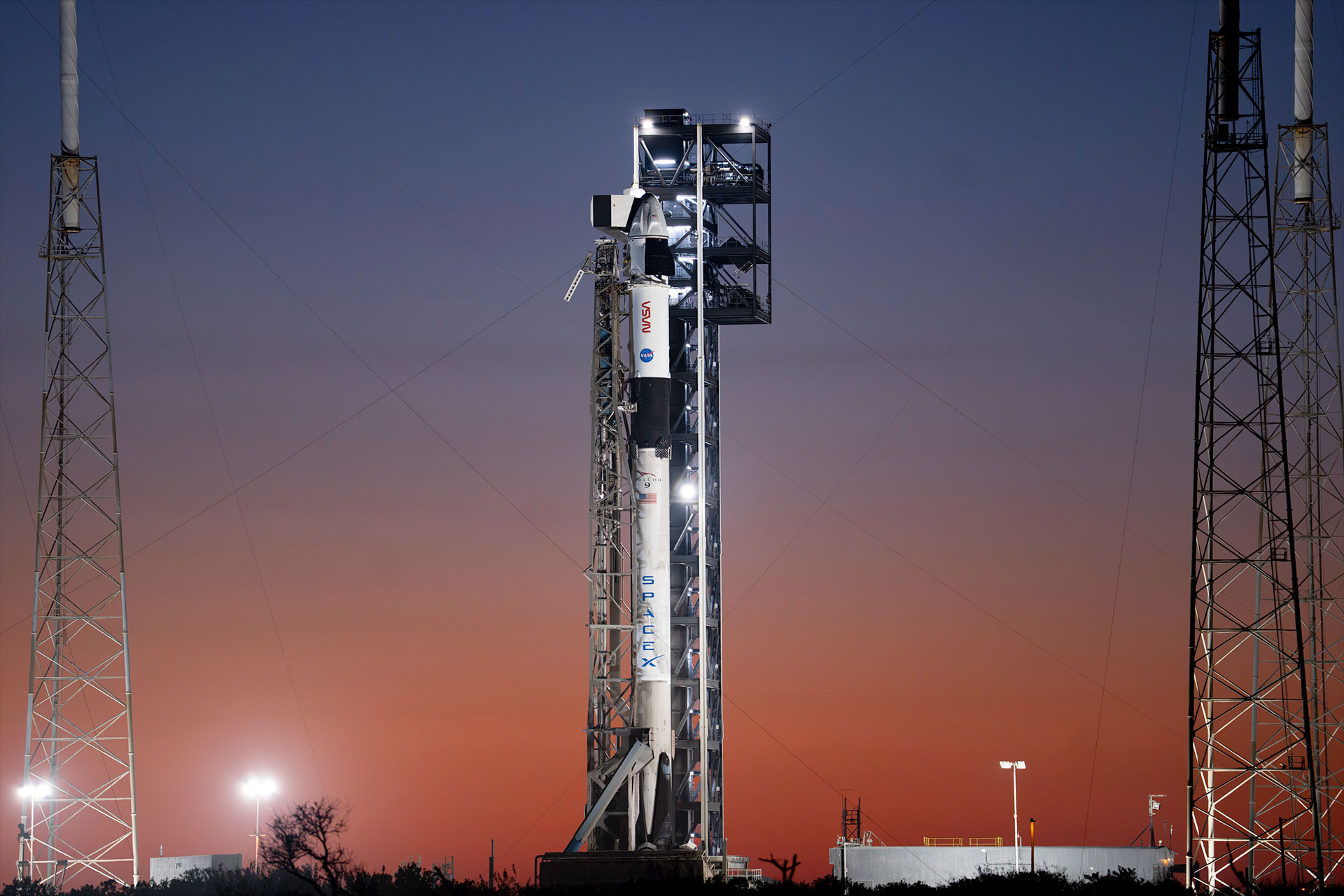On this day in space: Feb. 12, 2001: NEAR-Shoemaker lands on asteroid Eros
On Feb. 12, 2001, NASA notched a world first by landing a spacecraft on an asteroid!
Breaking space news, the latest updates on rocket launches, skywatching events and more!
You are now subscribed
Your newsletter sign-up was successful
Want to add more newsletters?

Delivered daily
Daily Newsletter
Breaking space news, the latest updates on rocket launches, skywatching events and more!

Once a month
Watch This Space
Sign up to our monthly entertainment newsletter to keep up with all our coverage of the latest sci-fi and space movies, tv shows, games and books.

Once a week
Night Sky This Week
Discover this week's must-see night sky events, moon phases, and stunning astrophotos. Sign up for our skywatching newsletter and explore the universe with us!

Twice a month
Strange New Words
Space.com's Sci-Fi Reader's Club. Read a sci-fi short story every month and join a virtual community of fellow science fiction fans!
On Feb. 12, 2001, NASA landed a spacecraft on an asteroid! After a five-year mission, the NEAR-Shoemaker spacecraft touched down on the near-Earth asteroid 433 Eros.
This was the first soft landing on an asteroid, and it was supposed to be the last thing NEAR-Shoemaker ever did. But NASA was surprised to find that the spacecraft was still intact and totally fine after hitting the asteroid. Instead of ending the mission as planned, NASA spent a couple more weeks studying Eros from up close.
Throughout its mission, it studied things like the asteroid's composition and magnetic field, but it also took the first close-up asteroid pictures ever taken by a spacecraft in orbit.
On This Day in Space: See our full 365-day video archive!
Breaking space news, the latest updates on rocket launches, skywatching events and more!

Hanneke Weitering is a multimedia journalist in the Pacific Northwest reporting on the future of aviation at FutureFlight.aero and Aviation International News and was previously the Editor for Spaceflight and Astronomy news here at Space.com. As an editor with over 10 years of experience in science journalism she has previously written for Scholastic Classroom Magazines, MedPage Today and The Joint Institute for Computational Sciences at Oak Ridge National Laboratory. After studying physics at the University of Tennessee in her hometown of Knoxville, she earned her graduate degree in Science, Health and Environmental Reporting (SHERP) from New York University. Hanneke joined the Space.com team in 2016 as a staff writer and producer, covering topics including spaceflight and astronomy. She currently lives in Seattle, home of the Space Needle, with her cat and two snakes. In her spare time, Hanneke enjoys exploring the Rocky Mountains, basking in nature and looking for dark skies to gaze at the cosmos.
You must confirm your public display name before commenting
Please logout and then login again, you will then be prompted to enter your display name.

